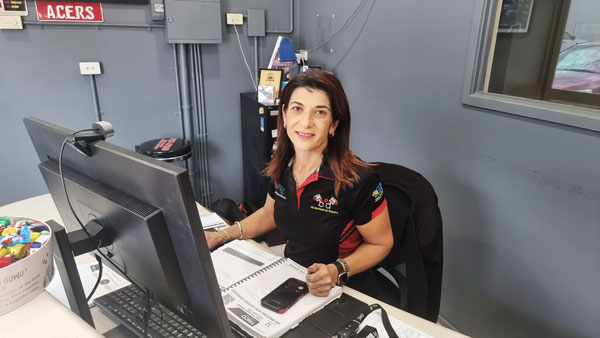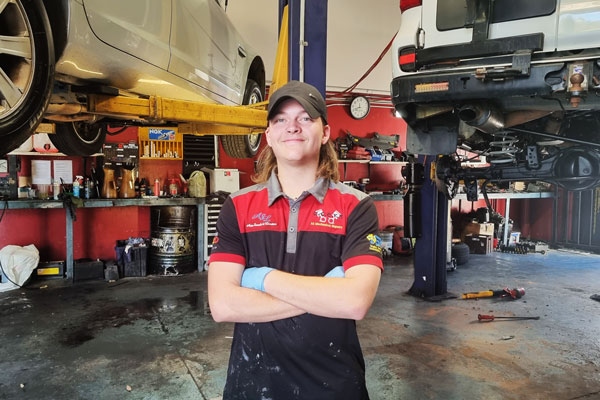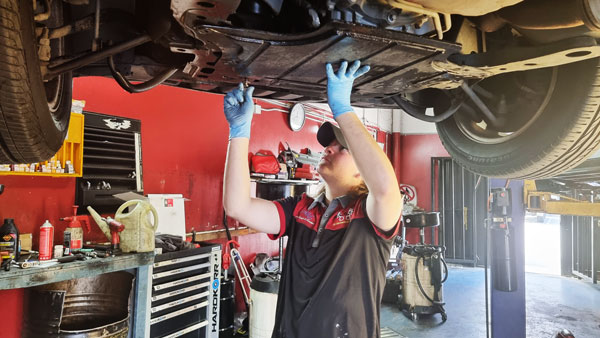The automotive industry is experiencing major skills shortages, with a shortfall of around 40,000 skilled professionals across the nation and across all sectors. From mechanics to engine reconditioners, from collision repairers to painters, from heavy vehicle techs to auto electricians and everything in between, finding either employees
who are already trained and have the skills to do the job, or apprentices wanting to start that career journey, is proving fiendishly difficult.
According to the MTAA’s Directions in Australia’s Automotive Industry – An Industry Report 2021, 52 per cent of automotive businesses were experiencing a shortage of skilled labour, while Capricorn’s State of the Nation 2022 report stated that 56 per cent of its members ‘were very or extremely concerned about the problem’, and that ‘a third of members were struggling to find skilled staff, a quarter were currently looking for staff, and 15 per cent had unfilled positions.’
As that report rightly points out, such a situation causes ‘backlogs of work, longer working hours, a reduction in work-life balance, and increase in stress, and longer turnaround time.’ It’s a tough time for many businesses.
Organisations such as MTA Queensland are working hard to find and develop solutions to the problem, and amongst the initiatives now up and running at the Association are AutoWomen, which is designed to provide support to women working in and wanting to develop a career in the industry; Workforce Connect, which is designed to assist businesses with cultural change and develop strategies to make the industry more attractive to underrepresented communities; an Industry Workforce Advisor whose role is to assist employers in addressing workforce challenges; and a School to Work project aimed to give students, parents and Vocational Education and Training Guidance officers the information and support required to launch young Queenslanders into a school-based apprenticeship. Together with MTA Queensland’s well-established programs such as the Auto Ready introductory training course for school students, and the AUR20720 Certificate II in Automotive Vocational Preparation course, also aimed at school students, MTA Queensland continues to find solutions to the vexing skills shortage challenge.
Automotive businesses should, of course, take advantage of all avenues open to them to engage with anyone interested in an automotive career. Doing so might prove be the key to unearthing their next skilled employee.
One business that has taken such a chance is All Car Engine Reconditioning Services (ACERS) at Ormeau, south of Brisbane. Established by Hatice and Len Hutchinson in 2007, ACERS delivers a range of services from reconditioning engines through to more general mechanical offerings such as logbook services, mechanical repairs, dyno tuning and more.
While content for a long time with the number of highly skilled staff within the business, a couple of years ago Hatice and Len began the search to expand their workforce.

It was, said Hatice, a difficult process and one that led them to taking on a school-based apprentice.
“The automotive industry has been suffering a wide skills shortage and we have been on the receiving end of that here at ACERS ourselves, especially over the last two to three years. It’s been very hard to find skilled [staff], especially in the engine reconditioning and cylinder head side of our business,” she said.
“After going through all the normal channels such as Seek, social media, Indeed, word of mouth and all the other usual platforms of staff recruitment, we just found that we weren’t having much luck. And it was actually suggested to us whether we would be interested in taking on a school-based apprentice.”
Uncertain at first whether taking a chance on a person so young, and still at school, would work out, Hatice and Len took the gamble. It paid off handsomely.
“I was very hesitant at first. I will be honest with you, very hesitant – just given at the tender age of like 14 or 15, the lack of knowledge or the skill base to actually work in a fast-paced environment like a mechanical workshop,” said Hatice. “But almost three years on, it’s actually been the best decision we’ve ever made.”
A conversation with a local school’s careers guidance officer quickly morphed into a two-week work experience block with ACERS for Vann Partridge, a Year 10 student keen to take a look at automotive as a career possibility.
Those two weeks were invaluable and led to Vann joining ACERS as a school-based apprentice training for his light vehicle qualification. It was, said Hatice, a simple process to bring Vann on board.
“We contacted MTA Queensland, sat down and went through the process and it really was as easy as 1-2-3,” she said. “We haven’t looked back since. And the other thing that made it a no-brainer for us is that the school actually takes on all the liability of public insurance, worker’s compensation, anything like that, that you might need to have to deal with when you’re putting on a new worker.”
For Vann, now 18, the chance to start his automotive career and training while still at school was an opportunity not to be missed.

“I wanted to work in the industry, to work on cars and engines, since I was really young when Dad taught me how to start working on cars, and I loved it,” he said.
“When I hit Grade 10, I got the opportunity for work experience here at ACERS and I really enjoyed those two weeks. I started my apprenticeship here within a few days.
“I was doing one day a week from Grade 10 to Grade 11,” he added. “Then, when I hit Grade 12, I got the option to apply for two days a week. I’ve been doing that ever since and full time on school holidays. When I graduate from school, I will be full time here at ACERS.”
While Vann may have been a young teenager when he first started at ACERS, Hatice said that there were few accommodations required to be made for either his age or the fact he was still at school. While he is at the workshop, Vann is treated as a regular member of staff.
“Having a school-based apprentice is really no different to having a normal full-time apprentice,” she said. “Expectations – whether it be behaviour, the workload, or the studies – are all the same.
“The only difference sometimes that I did find at the beginning is a bit of give and take whether Vann might have had an exam on that day or whether they might have had an excursion on that week, and all we did was change the dates around.
“Taking on a school-based apprentice has been nothing but a positive experience . . . and to top it all off, we’re able to train them and educate them to suit our business model. I would encourage any automotive business, no matter what sector they’re in, to take on a school-based apprentice.”
Having been working and training at ACERS for nearly three years, Vann is a trusted member of team, and able to work semi-independently with the support and guidance of the ACERS team.
“The school-based apprenticeship has been a great experience for me,” he said. “If you know what you want to do, the school-based apprenticeship is a great option.”
School to Work Transitions is part of the Queensland Government’s Good people. Good jobs: Queensland Workforce Strategy 2022–2032.


